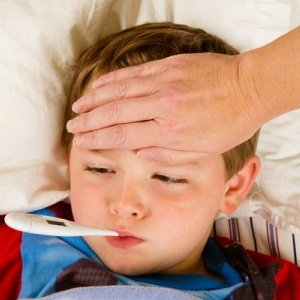
Although it's extremely rare, colds, flu and other minor infections might trigger a strong but brief period of elevated risk for stroke in children, a new study suggests.
Just five out of 100,000 children a year have a stroke in the United States, said Dr. Heather Fullerton, lead author of the study and a professor of neurology and paediatrics at the University of California, San Francisco Benioff Children's Hospital. "It seems infections play a role in causing a stroke in those who are somehow predisposed to the problem," she said.
The study found that the risk of stroke from infection was increased only within a three-day period. That suggests that the cause is acute inflammation of the arteries, a problem already discovered as a possible trigger in adults, said Fullerton.
"A stroke is just one rare but bad possible complication of an infection," said Fullerton.
While it is unclear exactly how the process might work, inflammatory responses -- which are a defence mechanism against infection - can cause a stroke, said Dr. Lars Marquardt, who wrote an editorial accompanying the research, published online Aug. 20 in Neurology.
"Infections trigger activation of platelets [blood cells responsible for clotting], making them more prone to clotting," he said.
Read: Flu can kill even healthy children
However, having chronic infections or a series of infections did not seem to increase the risk of stroke. "With kids, once you're done with an infection you're done with the stroke risk," Fullerton explained.
Children with health issues such as cardiac disease, sickle cell anaemia or lupus may be more prone to stroke. Yet a small number of children appear to have been perfectly healthy before having a stroke, explained Fullerton.
Effects of stroke on children
When strokes occur in kids, the outcomes aren't always good, said Fullerton. "Fatality rates are 5 to 10 percent, so certainly kids can die from strokes."
Youth can actually work against children in the case of a stroke. Kids have more brain mass than adults, because older brains tend to shrink a little over time. Since kids' brains are still "full-sized," there's less room for the brain swelling that occurs after a stroke, Fullerton explained. "So they die from very high pressures in their head, fatal brain swelling."
One-third of kids who survive a stroke will end up with a severe disabling outcome, another third will have an evident problem and a third will have minimal or no deficits, said Fullerton.
For the study, researchers tapped a health-care plan database of 2.5 million children. From that group, they identified about 100 children who had had an ischemic stroke (the type caused by obstruction of a blood vessel that supplies blood to the brain). They matched those children to about 300 kids who didn't have strokes. Kids who had had a major infection such as meningitis or sepsis were excluded from the study.
The children who had strokes were 12 times more likely to have seen a physician for a minor infection within three days of the stroke than were the children who didn't have strokes. About 80 percent of the minor infections identified were upper respiratory, such as colds and flu.
Read: Second hand smoke tied to flu complications in kids
Implications of the study
The study had several limitations, said Marquardt, a professor of surgery in the department of neurology at the University of Erlangen-Nuremberg, Germany. The research didn't include children who hadn't seen a physician for their infection. Also, the researchers didn't review laboratory tests to look for signs of infection that might not have been entered into the medical record, and they didn't include analysis of any non prescription medications the children may have taken that could have prevented blood clots, he noted.
As for the potential impact of the research, Fullerton said paediatricians need to think about stroke as another rare complication of infection. Yet many physicians are not aware that kids can have strokes, she said.
"Some parents bring their child to the emergency department saying, 'I think my child is having a stroke' and are told that strokes don't happen to kids," she said. "If your child looks like they're having a stroke, get medical attention."
Those symptoms can include seizures, sudden headaches, sudden difficulty speaking, weakness on one side of the body, or sudden loss of vision or balance.
Read more:
Flu and children
You, your kid and flu
Don't be hasty to have your kids admitted
Image: Sick child boy being checked for fever and illness while resting in bed from Shutterstock




 Publications
Publications
 Partners
Partners











